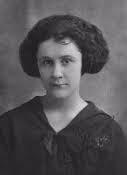The Monk at Quadragesima
by Jessica Powers
Come, death.
Walk in this season of your grim renown.
Come, let me have my bouts with you, knave
who tracked my Master down.
I honor you with shares of all I have.
Break bread with me; be sated at my table.
Snatch your sweet portions of my scanty rest.
Take all that I am able
to give of all that flesh and blood keep bringing
when cosmic bells have set my senses ringing.
Eat your cold way into my self-esteem
till even the deep subtle root has died.
Wrest from my mind the crowns of which I dream.
Take the externals; take the bright inside.
Tear out impatience by the handfuls—so.
Grab, if you can, my pride
and thieve those words that leave me deified.
Come death, my friend, my friend.
I know the good your coming works in me.
Shape me to Christ before my journey's end;
Hack me and hew me till Christ comes to be
my dear identity.
For certainly I know
that in our sharp encounter well I fare.
With you as guest beside me all is gain.
You slay me, death, but then I rise to live
and you yourself are slain.
Jessica Powers
1905 – 1988

Early Years (1905 - 1936)
- Born and raised in Mauston, Wisconsin
- Both her father and older sister had died by her thirteenth birthday
- Returned to raise her brothers after her mother's death in 1925
- She published over 100 poems before 1936
Carmelite Community (1941 - 1988)
- Entered the Milwaukee community of the Carmel of Mother of God, as a postulant In 1941
- In 1942, she received the habit of the Carmelites and was given the religious name of Sister Miriam of the Holy Spirit.
- As a mystic Jessica expresses in her poetry the direct, intense, immediacy of God's presence.
Poem Highlights
(for me)
- Dynamic poem structure
- Lenten theme
- Parallel's to a similar, classic poem
Poem Structure
-
Free verse-ish
- Rhymes, but not in an obvious pattern
- First letters are not capitalized
- Looks and sounds more serious
-
Beginning of poem is much more varied making the speaker sound passionate
- The last stanza is metrically consistent sounding calm and peaceful
Beginning is commanding
- Nearly every sentence begins with a command
-
This tone creates tension and passion
Why is it called
"The Monk at Quadragesima"?
Quadragesima
- Another name for Lent
- Quadragesima Sunday is the first Sunday of Lent
- Quadragesima comes from the Latin word for "fortieth"
- There are forty days from Quadragesima Sunday to Good Friday
Similarities to "Death Be Not Proud"
- Similar theme and voicing to John Donne's classic
- "Death" is not capitalized
- Donne mocks death; Powers submits
- Jessica and Donne start their poems similarly
- They both address Death confrontationally
Thou art slave to fate, chance, kings, and desperate men,
And dost with poison, war, and sickness dwell,
And poppy or charms can make us sleep as well
And better than thy stroke; why swell'st thou then?
I honor you with shares of all I have.
Break bread with me; be sated at my table.
…
Eat your cold way into my self-esteem
till even the deep subtle root has died.
…
Grab, if you can, my pride
and thieve those words that leave me deified.
- Donne continues to berate Death
- Jessica's monk implores Death to do its work in him
One short sleep past, we wake eternally
And death shall be no more; Death, thou shalt die.
For certainly I know
that in our sharp encounter well I fare.
With you as guest beside me all is gain.
You slay me, death, but then I rise to live
and you yourself are slain.
- Donne proclaims Death defeated because we have eternal life in the age to come
- Jessica proclaims Death defeated because it has redeemed her
Themes
- Death will be defeated, but it has its part to play
- Without Death we cannot be redeemed
- During Lent we allow Death his way with us
- Only by dying can we defeat Death and gain New Creation life in Christ
The Monk at Quadragesima
By Timothy Krell
The Monk at Quadragesima
An overview of the poem "The Book and the Cup" by Jessica Powers.
- 817



